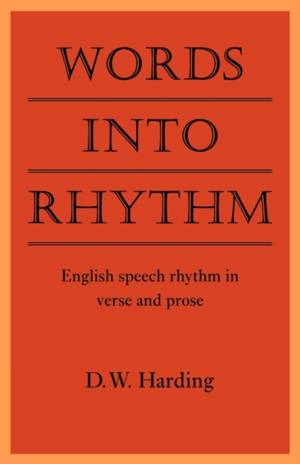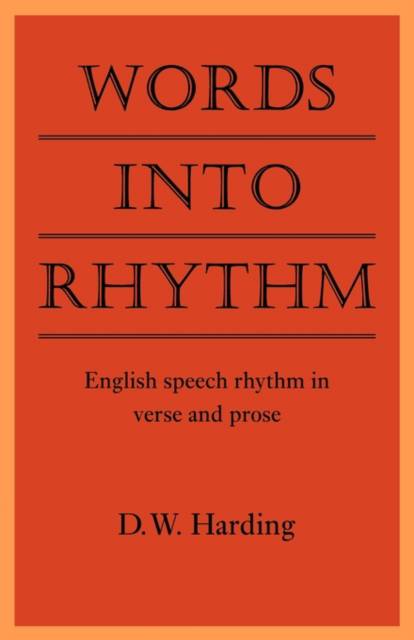
Door een staking bij bpost kan je online bestelling op dit moment iets langer onderweg zijn dan voorzien. Dringend iets nodig? Onze winkels ontvangen jou met open armen!
- Afhalen na 1 uur in een winkel met voorraad
- Gratis thuislevering in België vanaf € 30
- Ruim aanbod met 7 miljoen producten
Door een staking bij bpost kan je online bestelling op dit moment iets langer onderweg zijn dan voorzien. Dringend iets nodig? Onze winkels ontvangen jou met open armen!
- Afhalen na 1 uur in een winkel met voorraad
- Gratis thuislevering in België vanaf € 30
- Ruim aanbod met 7 miljoen producten
Zoeken
€ 72,45
+ 144 punten
Omschrijving
Critics take for granted the importance of rhythm in poetry and prose, above all its capacity for suggesting states of mind, especially emotional states. But they are seldom clear what range of effects rhythm can reasonably be credited with, nor even, at times, what exactly the term refers to. Professor Harding here views these and allied problems from a psychological standpoint. Rhythm as a means of suggesting states of mind is discussed in the light of its being not merely something the reader listens to, but something he does, a system of movement. Throughout the book, the realities of spoken language take precedence of prosodic fictions, and emphasis is placed on the poet's organization of speech rhythms within a line of verse, metrical or free. Poetry and prose from the fifteenth to the twentieth century provide passages for illustration and analysis.
Specificaties
Betrokkenen
- Auteur(s):
- Uitgeverij:
Inhoud
- Aantal bladzijden:
- 176
- Taal:
- Engels
- Reeks:
Eigenschappen
- Productcode (EAN):
- 9780521134347
- Verschijningsdatum:
- 11/03/2010
- Uitvoering:
- Paperback
- Formaat:
- Trade paperback (VS)
- Afmetingen:
- 140 mm x 216 mm
- Gewicht:
- 231 g

Alleen bij Standaard Boekhandel
+ 144 punten op je klantenkaart van Standaard Boekhandel
Beoordelingen
We publiceren alleen reviews die voldoen aan de voorwaarden voor reviews. Bekijk onze voorwaarden voor reviews.











